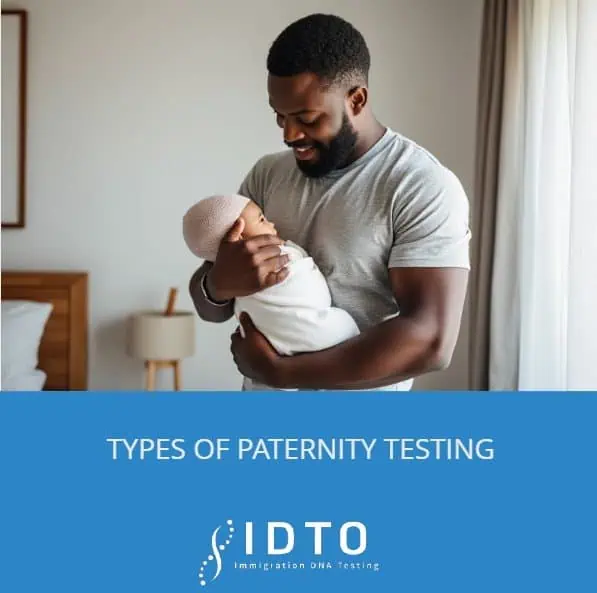WHAT KIND OF PATERNITY TESTING TYPES EXIST?

While paternity testing often gets simplified as a single DNA test, there are in fact different options and important factors to consider. In this post we will discuss what options can empower you to make an informed decision about the right test for your needs.
Paternity Testing Types:
Legal Paternity Tests
Legal paternity testing helps to determine if an alleged father and child are biologically related. This testing option requires a chain of custody be established. Common uses for a legal test is child custody, immigration, adding or removing a name on a birth certificate.
Please note, legal paternity test should be tested and analyzed by an AABB-accredited laboratory to be recognized by family court. Learn more about legal paternity testing here.
Non-legal Paternity Tests
A non-legal paternity test is a peace of mind test that can also be used to determine if there is a biological relationship between an alleged father and child.
This testing option cannot be used for any legal purpose although both legal and non-legal test are tested the same way. Learn more about non-legal paternity test here.
Method of collection:
Cheek swabs is the common method of collection. Blood samples have the same accuracy but is more painful collection method.
Accuracy & Reliability
All DNA specimens will be processed and analyzed by our partner laboratory AABB accredited, ensuring the highest standards of accuracy and reliability in testing all DNA specimens.
Please keep in mind home DNA tests are for informational purposes only. Therefore, At-Home DNA Test results are not legally admissible. While our Home Tests are intended for informational use only and cannot be used legally, the results are tested to the same strict protocols as legal paternity tests.
Non-Invasive Prenatal Paternity Test
A Non-Invasive Prenatal Paternity Test (NIPP) is a DNA test that can determine the paternity of an unborn child without the need for invasive procedures such as amniocentesis or chorionic villus sampling (CVS).
The test is performed by analyzing the DNA fragments present in the mother’s blood that come from both herself and the fetus. By comparing the genetic information of the alleged father with the fetal DNA, it is possible to determine whether the tested man is likely to be the biological father of the unborn child.
NIPP tests are typically performed after the 8th week of pregnancy and have a high accuracy rate, often exceeding 99%. They are considered safe for both the mother and the fetus since they involve only a simple blood draw from the mother.
Currently, IDTO DNA Testing Center does not offer NIPP testing services.
What options do I have to determine paternity when an alleged father is unavailable?
The forensic paternity testing option is often used when an alleged father is unavailable. But if you are able to acquire a forensic sample. Performing one of the following DNA relationship testing types can help determine paternity.
1. Sibling DNA Testing – If the alleged father has children with more than one woman their children can use this option. It is recommended that the mother partakes in this test for higher accuracy of your results.
2. Avuncular DNA Testing – If the alleged father has a brother or sister. The aunt or uncle can be tested with their niece or nephew to help determine a biological relationship. It is recommended that the mother partakes in this test is available for higher accuracy.
3. Grandparent DNA Testing – This test is used the most when an alleged father is unavailable to be tested and one or both parents are willing to perform a Grandparent DNA test. It is recommended that the mother partakes in this test is available for higher accuracy.
Conclusion:
In summary, There is one type of paternity test depending on your use of the results there are two basic options. legal and non-legal. In the event that an alleged father is unavailable to be tested. There are alternative DNA tests that can be performed to help determine a paternal relationship.
